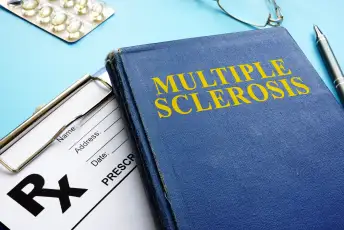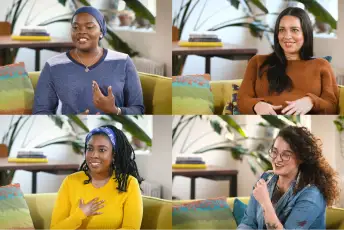布鲁克:我总是在第一次约会时就说出我的“MS炸弹”。达莉亚:我觉得他一开始并不理解。朱莉:多发性硬化症在我结束这段关系中起了很大作用。凯伦:我说,这就是为什么我是现在这个样子。朱莉:他总是让我觉得他是在帮我一个小忙。然后我意识到,不,你不是。达莉亚:我会告诉他,对他说,我累了,我需要一点时间,或者我记不起某些事情。在我的脑海里。我告诉你,我今天过得很糟糕,这对我来说不是个好日子。他说,哦,对,我也是。 Karen: We were just friends at the time. And he mentioned, you know, why are you so positive all the time? Not that you're always bubbly, but he wanted to know why I was carrying that. I didn't say anything. I just sent him my MS page, the walk MS page. And the minute he read that, he said, whoa. Kristine: When I called him, I was walking from the neurologist's office when he gave me the results from my scans. And I'm calling him and he's like, just comforting me. You know, doing what, you know, a good boyfriend would do and saying, I know this sucks. We're going get through it. You know, which was a big relief, obviously, because you're just like, wow, what does this. now do to our relationship? Julie: You have to realize that you can't feel bad about who you are. Daria: I had to, like, send him little articles or like kind of try and educate him about, like what MS is. And it's like an invisible disease. So, he was more knowledgeable about it. Brooke: I think it really depends on the person that you're around, the person I'm dating now he was really great about it. He was like, oh, that's interesting. We could talk more about that another time. OK, great. But it's not like a deal breaker. And he's like, no, why would it be a deal breaker? You're just a nice guy.









